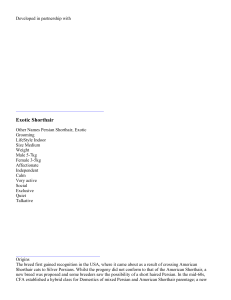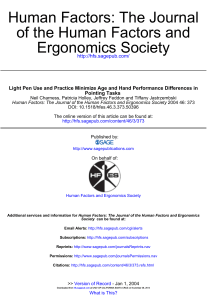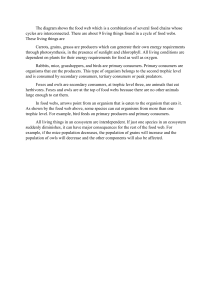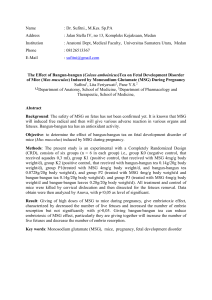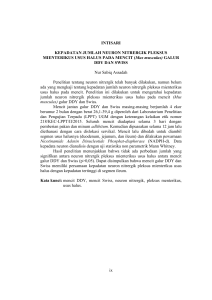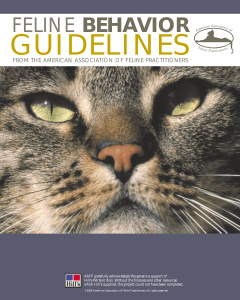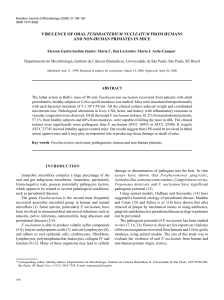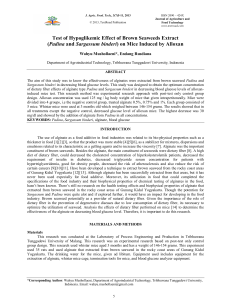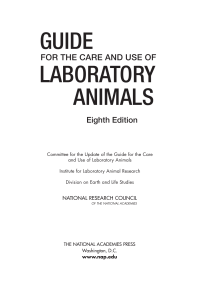Uploaded by
Awang Faizar Rahman
Cat and Mouse: Fables about Cats and Mice | Folktales Collection
advertisement
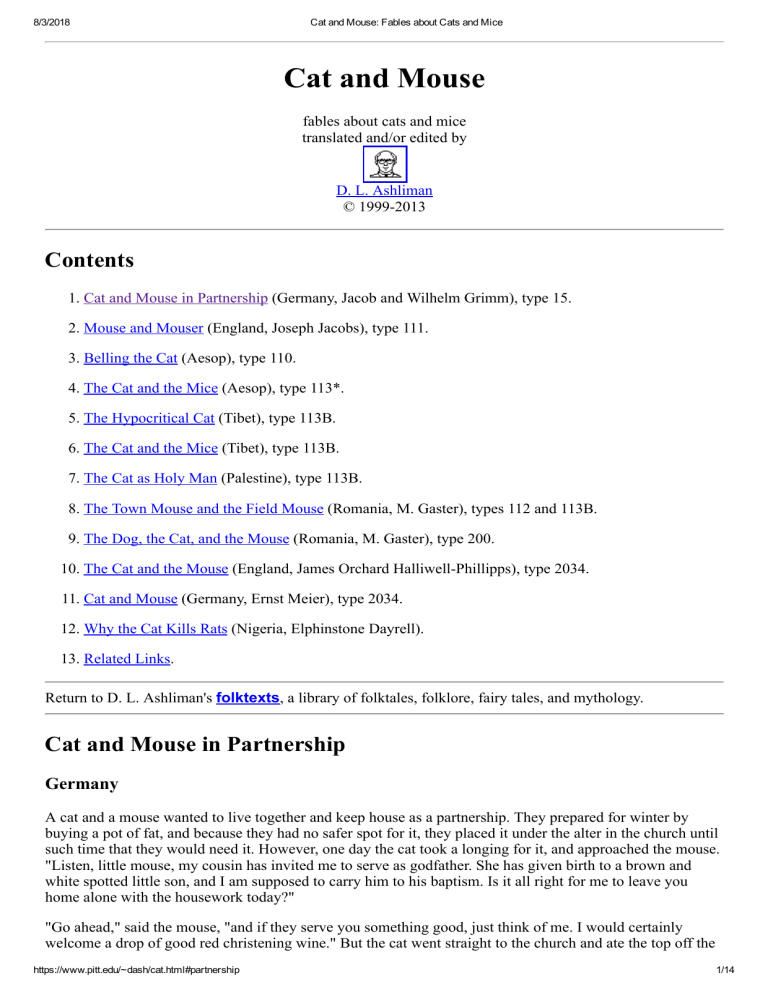
8/3/2018 Cat and Mouse: Fables about Cats and Mice Cat and Mouse fables about cats and mice translated and/or edited by D. L. Ashliman © 1999­2013 Contents 1. Cat and Mouse in Partnership (Germany, Jacob and Wilhelm Grimm), type 15. 2. Mouse and Mouser (England, Joseph Jacobs), type 111. 3. Belling the Cat (Aesop), type 110. 4. The Cat and the Mice (Aesop), type 113*. 5. The Hypocritical Cat (Tibet), type 113B. 6. The Cat and the Mice (Tibet), type 113B. 7. The Cat as Holy Man (Palestine), type 113B. 8. The Town Mouse and the Field Mouse (Romania, M. Gaster), types 112 and 113B. 9. The Dog, the Cat, and the Mouse (Romania, M. Gaster), type 200. 10. The Cat and the Mouse (England, James Orchard Halliwell­Phillipps), type 2034. 11. Cat and Mouse (Germany, Ernst Meier), type 2034. 12. Why the Cat Kills Rats (Nigeria, Elphinstone Dayrell). 13. Related Links. Return to D. L. Ashliman's folktexts, a library of folktales, folklore, fairy tales, and mythology. Cat and Mouse in Partnership Germany A cat and a mouse wanted to live together and keep house as a partnership. They prepared for winter by buying a pot of fat, and because they had no safer spot for it, they placed it under the alter in the church until such time that they would need it. However, one day the cat took a longing for it, and approached the mouse. "Listen, little mouse, my cousin has invited me to serve as godfather. She has given birth to a brown and white spotted little son, and I am supposed to carry him to his baptism. Is it all right for me to leave you home alone with the housework today?" "Go ahead," said the mouse, "and if they serve you something good, just think of me. I would certainly welcome a drop of good red christening wine." But the cat went straight to the church and ate the top off the https://www.pitt.edu/~dash/cat.html#partnership 1/14 8/3/2018 Cat and Mouse: Fables about Cats and Mice fat and then went strolling about the town and did not return home until evening. "You must have had a good time," said the mouse. "What name did they give the child?" "Top­Off," answered the cat. "Top­Off? That's a strange name, one that I've not yet heard." Soon afterward the cat took another longing, went to the mouse, and said, "I've been asked to serve as godfather once again. The child has a white ring around its body. I can't say no. You'll have to do me a favor and take care of the house by yourself today." The mouse agreed, and the cat went and ate up half the fat. When she returned home, the mouse asked, "What name did this godchild receive?" "Half­Gone." "Half­Gone? What are you telling me? I've never heard that name. It certainly isn't in the almanac." Now the cat could not take his mind off the pot of fat. "I've been invited to serve as godfather for a third time," he said. "The child is black and has white paws, but not another white hair on his entire body. That only happens once in a few years. You will let me go, won't you?" "Top­Off, Half­Gone," said the mouse. "Those names are so curious that it makes me a bit suspicious, but go ahead." The mouse took care of the house and cleaned up everything, while the cat finished off the pot of fat. Round and full, she did not return until nighttime. "What is the third child's name?" "All­Gone." "All­Gone! That is a worrisome name!" said the mouse. "All­Gone. Just what does this mean? I've never seen that name in print," and she shook her head and went to bed. No one invited the cat to serve as godfather a fourth time. Winter soon came, and when they could no longer find anything to eat outside, the mouse said to the cat, "Let's get the provisions that we've hid in the church under the altar." They went there, but the pot was empty. "Now I see!" said the mouse. "You came here when you said you were invited to be a godfather. First came Top­Off, then it was Half­Gone, and then..." "Be still," said the cat. "I'll eat you up, if you say another word." "All­Gone" was already in the poor mouse's mouth, and she had scarcely said it before the cat jumped on her and swallowed her down. Source: Jacob and Wilhelm Grimm, Kinder­ und Hausmärchen, 1st ed. (Berlin, 1812/1815), v. 1, no. 2. Link to the German text Katz und Maus in Gesellschaft. Aarne­Thompson­Uther type 15. Return to the table of contents. https://www.pitt.edu/~dash/cat.html#partnership 2/14 8/3/2018 England Cat and Mouse: Fables about Cats and Mice Mouse and Mouser The mouse went to visit the cat, and found her sitting behind the hall door, spinning. Mouse: What are you doing, my lady, my lady, What are you doing, my lady? Cat (sharply): I'm spinning old breeches, good body, good body, I'm spinning old breeches, good body. Mouse: Long may you wear them, my lady, my lady, Long may you wear them, my lady. Cat (gruffly): I'll wear 'em and tear 'em, good body, good body, I'll wear 'em and tear 'em, good body. Mouse: I was sweeping my room, my lady, my lady, I was sweeping my room, my lady. Cat: The cleaner you'd be, good body, good body, The cleaner you'd be, good body. Mouse: I found a silver sixpence, my lady, my lady, I found a silver sixpence, my lady. Cat: The richer you were, good body, good body, The richer you were, good body. Mouse: I went to the market, my lady my lady, I went to the market, my lady. Cat: The further you went, good body, good body, The further you went, good body. Mouse: I bought me a pudding, my lady, my lady, I bought me a pudding, my lady. Cat: (snarling): The more meat you had, good body, good body, The more meat you had, good body. Mouse: I put it in the window to cool, my lady, I put it in the window to cool. Cat (sharply): The faster you'd eat it, good body, good body, The faster you'd eat it, good body. https://www.pitt.edu/~dash/cat.html#partnership 3/14 8/3/2018 Cat and Mouse: Fables about Cats and Mice Mouse (timidly): The cat came and ate it, my lady, my lady, The cat came and ate it, my lady. Cat (pouncingly): And I'll eat you, good body, good body, And I'll eat you, good body. (Springs upon the mouse and kills it.) Source: Joseph Jacobs, English Fairy Tales (New York: G. P. Putnam's Sons; London: David Nutt, 1898), pp. 48­50. Jacobs' source: From memory by Lady Burne­Jones. Aarne­Thompson­Uther type 111. Return to the table of contents. 8/3/2018 Cat and Mouse: Fables about Cats and Mice There was once a house that was overrun with mice. A cat heard of this, and said to herself, "That's the place for me," and off she went and took up her quarters in the house, and caught the mice one by one and ate them. At last the mice could stand it n longer, and they determined to take to their holes and stay there. "That's awkward," said the cat to herself. "The only thing to do is to coax them out by a trick." So she considered a while, and then climbed up the wall and let herself hang down by her hind legs from a peg, and pretended to be dead. By and by a mouse peeped out and saw the cat hanging there. "Aha!" it cried, "You're very clever, madam, no doubt. But you may turn yourself into a bag of meal hanging there, if you like, yet you won't catch us coming anywhere near you." If you are wise you won't be deceived by the innocent airs of those whom you have once found to be dangerous. Source: V. S. Vernon Jones, transl., Æsop's Fables (London: W. Heinemann, 1912), pp. 2­3. Aarne­Thompson­Uther type 113*. Return to the table of contents. The Hypocritical Cat Tibet In long­past times there was a chieftain of a company of mice who had a retinue of five hundred mice. And there was also a cat named Agnija. In his youth he had been wont to kill all the mice in the neighborhood of his dwelling place. But afterward, when he had grown old, and no longer had the power of catching mice, he thought, "In former times, when I was young, I was able to catch mice by force. But now that I can do so no more, I must use some trick in order to make a meal off them." So he began to watch the mice by stealth. By means of such watching he found out that there were five hundred mice in the troop. At a spot not far distant from the mouse hole, he took to performing fictitious acts of penance, and the mice, as they ran to and fro, saw him standing there with pious mien. So they cried out to him from a distance, "Uncle, what are you doing?" The cat replied, "As in my youth I have perpetrated many vicious actions, I am now doing penance in order to make up for them." The mice fancied that he had given up his sinful life, and there grew up within them confidence nourished by faith. Now as they returned into their hole every day after making their rounds, the cat always seized on and devoured the mouse which came last. Seeing that the troop was constantly dwindling, the chief thought, "There must be some cause for the fact that my mice are diminishing in number, and this cat is thriving apace." So he began t observe the cat closely. And when he saw that the cat was fat and well covered with hair, he thought, "There is no doubt that this cat has killed the mice. Therefore must I bring the matter to the light of day." Now as he kept careful watch from a hiding place, he saw how the cat ate up the mouse which went last. Then from afar off he pronounced this verse: https://www.pitt.edu/~dash/cat.html#partnership 5/14 8/3/2018 Cat and Mouse: Fables about Cats and Mice As the uncle's body waxes bigger, but my troop on the contrary becomes smaller, and as he who eats roots and berries will not become fat and well covered with hair, this is not a genuine penance, but one performed only for the sake of gain. Because the number of the mice diminished, have you, O Agnija, thrived. Source: Tibetan Tales, Derived from Indian Sources, translated from the Tibetan of the Kaygyur [Kanjur] by F. Anton von Schiefner, and from the German into English by W. R. S. Ralston (London: Kegan Paul, Trench, Trübner and Company, 1906), no. 40, pp. 344­45. The Kanjur ("translated word") is a large collection of Buddhist teachings and tales, probably brought to Tibet by Indian refugees in the twelfth and thirteenth centuries. Depending on the edition, the Kanjur consists of 100, 102, or 108 folio volumes. The Kanjur plus the Tanjur ("translated treatises"), comprise the two parts of the official canon of Tibetan Buddhism. Return to the table of contents. The Cat and the Mice Tibet Once upon a time there was a cat who lived in a large farmhouse in which there was a great number of mice. For many years the cat found no difficulty in catching as many mice as she wanted to eat, and she lived a very peaceful and pleasant life. But as time passed on she found that she was growing old and infirm, and that it was becoming more and more difficult for her to catch the same number of mice as before; so after thinking very carefully what was the best thing to do, she one day called all the mice together, and after promising not to touch them, she addressed them as follows: "Oh! mice," said she, "I have called you together in order to say something to you. The fact is that I have led a very wicked life, and now, in my old age, I repent of having caused you all so much inconvenience and annoyance. So I am going for the future to turn over a new leaf. It is my intention now to give myself up entirely to religious contemplation and no longer to molest you, so henceforth you are at liberty to run about as freely as you will without fear of me. All I ask of you is that twice every day you should all file past me in procession and each one make an obeisance as you pass me by, as a token of your gratitude to me for my kindness." When the mice heard this they were greatly pleased, for they thought that now, at last, they would be free from all danger from their former enemy, the cat. So they very thankfully promised to fulfill the cat's conditions, and agreed that they would file past her and make a salaam twice every day. So when evening came the cat took her seat on a cushion at one end of the room, and the mice all went by in single file, each one making a profound salaam as it passed. Now the cunning old cat had arranged this little plan very carefully with an object of her own; for, as soon as the procession had all passed by with the exception of one little mouse, she suddenly seized the last mouse in her claws without anybody else noticing what had happened, and devoured it at her leisure. And so twice every day, she seized the last mouse of the series, and for a long time lived very comfortably without any trouble at all in catching her mice, and without any of the mice realizing what was happening. Now it happened that amongst these mice there were two friends, whose names were Rambé and Ambé, who were very much attached to one another. Now these two were much cleverer and more cunning than most of the others, and after a few days they noticed that the number of mice in the house seemed to be decreasing https://www.pitt.edu/~dash/cat.html#partnership 6/14 8/3/2018 Cat and Mouse: Fables about Cats and Mice very much, in spite of the fact that the cat had promised not to kill any more. So they laid their heads together and arranged a little plan for future processions. They agreed that Rambé was always to walk at the very front of the procession of the mice, and the Ambé was to bring up the rear, and that all the time the procession was passing, Rambé was to call to Ambé, and Ambé to answer Rambé at frequent intervals. So next evening, when the procession started as usual, Rambé marched along in front, and Ambé took up his position last of all. As soon as Rambé had passed the cushion where the cat was seated and had made his salaam, he called out in a shrill voice, "Where are you, Brother Ambé?" "Here I am, Brother Rambé," squeaked the other from the rear of the procession. And so they went on calling out and answering one another until they had all filed past the cat, who had not dared to touch Ambé as long as his brother kept calling to him. The cat was naturally very much annoyed at having to go hungry that evening, and felt very cross all night. But she thought it was only an accident which had brought the two friends, one in front and one in rear of the procession, and she hoped to make up for her enforced abstinence by finding a particularly fat mouse at the end of the procession next morning. What, then, was her amazement and disgust when she found that on the following morning the very same arrangement had been made, and that Rambé called to Ambé, and Ambé answered Rambé until all the mice had passed her by, and so, for the second time, she was foiled of her meal. However, she disguised her feelings of anger and decided to give the mice one more trial; so in the evening she took her seat as usual on the cushion and waited for the mice to appear. Meanwhile, Rambé and Ambé had warned the other mice to be on the lookout, and to be ready to take flight the moment the cat showed any appearance of anger. At the appointed time the procession started as usual, and as soon as Rambé had passed the cat he squeaked out, "Where are you, Brother Ambé?" "Here I am, Brother Rambé," came the shrill voice from the rear. This was more than the cat could stand. She made a fierce leap right into the middle of the mice, who, however, were thoroughly prepared for her, and in an instant they scuttled off in every direction to their holes. And before the cat had time to catch a single one, the room was empty and not a sign of a mouse was to be seen anywhere. After this the mice were very careful not to put any further trust in the treacherous cat, who soon after died of starvation owing to her being unable to procure any of her customary food. But Rambé and Ambé lived for many years, and were held in high honor and esteem by all the other mice in the community. Source: W. F. O'Connor, Folk Tales from Tibet (London: Hurst and Blackett, Ltd., 1906), no. 5, pp. 26­ 29. Aarne­Thompson­Uther type 113B. Return to the table of contents. The Cat as Holy Man Palestine A town cat, having destroyed almost all the mice and rats in the place, found itself forced, for lack of prey, to go into the fields and hunt for birds, mice, rats, and lizards. In this time of need it thought of the following ruse. https://www.pitt.edu/~dash/cat.html#partnership 7/14 8/3/2018 Cat and Mouse: Fables about Cats and Mice It stayed away for some weeks from its usual haunts, and, returning, lay down in front of a mouse and rat warren, with a rosary round its neck; then, with its eyes closed, fell to purring loudly. Soon a mouse peeped out of a hole, but, seeing the cat, hastily returned. "Why do you flee?" said pussy gently. "Instead of showing pleasure at the return of an old neighbor from the pilgrimage, you run away as soon as you see him. Come and visit me, fear nothing." Surprised at hearing itself thus addressed, the mouse again ventured to the door of its hole and said, "How can you expect me to visit you? Are you not the enemy of my race? Should I accept your invitation you would surely seize and devour me as you did my parents and so many others of my kindred." "Alas!" sighed the cat, "your reproaches are just. I have been a great sinner, and have earned abuse and enmity. But I am truly penitent. As you see from this rosary round my neck, I now devote myself to prayer, meditation, and the recital of holy books, the whole of which I have learnt by heart, and was just beginning to repeat when you happened to look out of your hole. Besides this, I have visited the Holy Places, so am a Hajji [pilgrim] as well as a Hâfiz [one who knows the whole Koran by heart]. Go, my injured but nevertheless generous and forgiving friend, make my change of life and sentiments known to the rest of your people and bid them no longer shun my society, seeing that I am become a recluse. Whilst you are absent I shall resume my recitations. Purr, purr, purr." Much surprised at the news he had just heard, the mouse made it known to the rest of the tribe. They were at first incredulous; but at last after one and another had ventured to peep from the mouth of its hole and had beheld the whiskered ascetic with the rosary round his neck apparently oblivious of earthly things, and steadily repeating his purr, purr, purr, which they supposed to be the contents of holy books, they thought that there might be some truth in the matter, and they convened a meeting of mice and rats to discuss it. After much debate it was judged right to test the reality of the cat's conversion, but to be prudent at the same time; and so a large and experienced rat was sent out to reconnoiter. Being a wary veteran, he kept well out of the cat's reach, though he saluted him respectfully from a distance. The cat allowed the rat to prowl about unmolested for a long time in the hope that other rats and mice would come out, when his prey would be easy to catch and plentiful. But no others came, and at last the pangs of hunger made him resolve to wait no longer. The rat, however, was on the alert and darted off the instant he noticed, from a slight movement of the cat's muscles, that the pretended saint was about to kill him. "Why do you go away so abruptly?" mewed the cat. "Are you tired of hearing me repeat scripture, or do you doubt the correctness of my recitation?" "Neither," answered the rat as he peeped from the hole in which he had taken refuge. "Neither," answered the rat as he peeped from the hole in which he had taken refuge. "I am convinced that, however much you may have learnt by rote, you have neither unlearnt nor eschewed your habits of pouncing upon us." Source: J. E. Hanauer, Folk­Lore of the Holy Land: Moslem, Christian, and Jewish, edited by Marmaduke Pickthall (London: Duckworth and Company, 1907), pp. 267­70. Hanauer does not provide a title for this story. Aarne­Thompson­Uther type 113B. Return to the table of contents. The Town Mouse and the Field Mouse https://www.pitt.edu/~dash/cat.html#partnership 8/14 8/3/2018 Cat and Mouse: Fables about Cats and Mice Romania A mouse living in the town one day met a mouse which lived in the field. "Where do you come from?" asked the latter when she saw the town mouse. "I come from yonder town," replied the first mouse. "How is life going there with you?" "Very well, indeed. I am living in the lap of luxury. Whatever I want of sweets or any other good things is to be found in abundance in my master's house. But how are you living?" "I have nothing to complain of. You just come and see my stores. I have grain and nuts, and all the fruits of the tree and field in my storehouse." The town mouse did not quite believe the story of her new friend, and, driven by curiosity, went with her to the latter's house. How great was her surprise when she found that the field mouse had spoken the truth; her garner was full of nuts and grain and other stores, and her mouth watered when she saw all the riches which were stored up there. Then she turned to the field mouse and said, "Oh, yes, you have here a nice snug place and something to live upon, but you should come to my house and see what I have there. Your stock is as nothing compared with the riches which are mine." The field mouse, who was rather simple by nature and trusted her new friend, went with her into the town to see what better things the other could have. She had never been into the town and did not know what her friend could mean when she boasted of her greater riches. So they went together, and the town mouse took her friend to her master's house. He was a grocer, and there were boxes and sacks full of every good thing the heart of a mouse could desire. When she saw all these riches, the field mouse said she could never have believed it, had she not seen it with her own eyes. While they were talking together, who should come in but the cat. As soon as the town mouse saw the cat, she slipped quietly behind a box and hid herself. Her friend, who had never yet seen a cat, turned to her and asked her who that gentleman was who had come in so quietly. "Do you not know who he is? Why, he is our priest, and he has come to see me. You must go and pay your respects to him and kiss his hand. See what a beautiful glossy coat he has on, and how his eyes sparkle, and how demurely he keeps his hands in the sleeves of his coat." Not suspecting anything, the field mouse did as she was told and went up to the cat. He gave her at once his blessing, and the mouse had no need of another after that. The cat gave her extreme unction there and then. That was just what the town mouse had intended. When she saw how well stored the home of the field mouse was, she made up her mind to trap her and to kill her, so that she might take possession of all that the field mouse had gathered up. She had learned the ways of the townspeople and had acted accordingly. Source: M. Gaster, Rumanian Bird and Beast Stories (London: Folk­Lore Society, 1915), no. 105, pp. 311­312. Aarne­Thompson­Uther types 112 and 113B. This is the familiar Aesopian fable of the town mouse and the country mouse (told here with an ironic twist), followed by the tale of the cat as a holy man. Return to the table of contents. The Dog, the Cat, and the Mouse https://www.pitt.edu/~dash/cat.html#partnership 9/14 8/3/2018 Cat and Mouse: Fables about Cats and Mice Romania In the beginning there was no enmity between the cat and dog, and they lived on friendly terms together and served their master (Adam) faithfully, each one doing its own work. But as you know, it is very much better to have a written agreement at the beginning than to have a row afterwards, so they decided to draw up an agreement defining the work which each had to do, and decided that the dog was to do the work outside the house, and the cat the work inside. For greater safety the dog agreed that the cat should take care of the agreement, and the cat put it in the loft. After a time, the devil, who could not allow peace to last for a long time, must needs set the dog up against the cat; so one day the dog remarked to the cat that he was not fairly treated. He did not see why he should have all the trouble outside the house, to watch for thieves and protect the house and suffer from cold and rain, and only have scraps and bones for food, and sometimes nothing at all, whilst the cat had all the comfort, purring and enjoying herself, and living near the hearth in warmth and safety. The cat said, "An agreement is an agreement." The dog replied, "Let me see that agreement." The cat went quickly up the loft to fetch the agreement, but the agreement, which had been a little greasy, had been nibbled by the mice who were living in the loft, and they went on nibbling away until nothing was left of it but a heap of paper fluff, and as it was as soft as down the mice made their home of it. When the cat came up and saw what the mice had done, her fury knew no bounds. She pursued them madly, killing as many as she could seize, and running after the others with the intent of catching them. When she came down the dog asked her for the agreement, and as the cat had not brought it, the dog, taking hold of her, shook her until he got tired of shaking her. Since that time, whenever a dog meets a cat he asks her for the agreement, and as she cannot show it to him he goes for her. And the cat, knowing what the mice had done to her, runs after them when she sees them. Source: M. Gaster, Rumanian Bird and Beast Stories (London: Folk­Lore Society, 1915), no. 66, pp. 208­209. Aarne­Thompson­Uther type 200. Return to the table of contents. The Cat and the Mouse England The cat and the mouse Played in the malt­house. The cat bit the mouse's tail off. "Pray, puss, give me my tail." "No," says the cat, "I'll not give you your tail, till you go to the cow, and fetch me some milk." First she leapt, and then she ran, Till she came to the cow, and thus began: https://www.pitt.edu/~dash/cat.html#partnership 10/14 8/3/2018 Cat and Mouse: Fables about Cats and Mice "Pray, cow, give me milk, that I may give cat milk, that cat may give me my own tail again." "No," said the cow, I will give you no milk, till you go to the farmer and get me some hay." First she leapt, and then she ran, Till she came to the farmer, and thus began: "Pray, farmer, give me hay, that I may give cow hay, that cow may give me milk, that I may give cat milk, that cat may give me my own tail again." "No," says the farmer, I'll give you no hay, till you go to the butcher and fetch me some meat." First she leapt, and then she ran, Till she came to the butcher, and thus began: "Pray, butcher, give me meat, that I may give farmer meat, that farmer may give me hay, that I may give cow hay, that cow may give me milk, that I may give cat milk, that cat may give me my own tail again." "No," says the butcher, "I'll give you no meat, till you go the baker and fetch me some bread." First she leapt, and then she ran, Till she came to the baker, and thus began: Pray, baker, give me bread, that I may give butcher bread, that butcher may give me meat, that I may give farmer meat, that farmer may give me hay, that I may give cow hay, that cow may give me milk, that I may give cat milk, that cat may give me my own tail again." "Yes," says the baker, I'll give you some bread, But if you eat my meal, I'll cut off your head. Then the baker gave mouse bread, and mouse gave butcher bread, and butcher gave mouse meat, and mouse gave farmer meat, and farmer gave mouse hay, and mouse gave cow hay, and cow gave mouse milk, and mouse gave cat milk, and cat gave mouse her own tail again! Source: James Orchard Halliwell­Phillipps: Popular Rhymes and Nursery Tales: A Sequel to the Nursery Rhymes of England (London: John Russell Smith, 1849), pp. 33­34. Footnote by Halliwell­Phillipps: This tale has been traced back fifty years, but it is probably considerably older. Aarne­Thompson­Uther type 2034. Return to the table of contents. Cat and Mouse Germany (Swabia) Once upon a time a cat and a mouse went for a walk together, and the cat bit off the mouse's tail. So the mouse said to the cat, "Give me back my tail." The cat said to the mouse, "If you will get me some cheese." So the mouse went to the innkeeper and said: https://www.pitt.edu/~dash/cat.html#partnership 11/14 8/3/2018 Cat and Mouse: Fables about Cats and Mice Innkeeper, give me some cheese! I'll give it to the cat, And the cat will give me back my tail. The innkeeper said, "If you will fetch me a knife." So the mouse went to the blacksmith and said: Blacksmith, give me a knife! I'll give it to the innkeeper, And the innkeeper will give me cheese for the cat, And the cat will give me back my tail. The blacksmith said, "If you will fetch me a horn." So the mouse went to the goat and said: Goat, give me a horn! I'll give it to the blacksmith, And the blacksmith will give me a knife for the innkeeper, And the innkeeper will give me cheese for the cat, And the cat will give me back my tail. The goat said, "If you will fetch me some hay." So the mouse went to the farmer and said: Farmer, give me hay! I'll give it to the goat, And the goat will give me a horn for the blacksmith, And the blacksmith will give me a knife for the innkeeper, And the innkeeper will give me cheese for the cat, And the cat will give me back my tail. The farmer said, "If you will fetch me some soup." So the mouse went to the cook and said: Cook, give me soup! I'll give it to the farmer, And the farmer will give me hay for the goat, And the goat will give me a horn for the blacksmith, And the blacksmith will give me a knife for the innkeeper, And the innkeeper will give me cheese for the cat, And the cat will give me back my tail. The cook said, "If you will fetch me some slippers." So the mouse went to the shoemaker and said: Shoemaker, give me slippers! I'll give them to the cook, And the cook will give me soup for the farmer, And the farmer will give me hay for the goat, And the goat will give me a horn for the blacksmith, And the blacksmith will give me a knife for the innkeeper, And the innkeeper will give me cheese for the cat, And the cat will give me back my tail. The shoemaker said, "If you will fetch me some bristles." So the mouse went to the sow and said: Sow, give me bristles! I'll give them to the shoemaker, And the shoemaker will give me slippers for the cook, And the cook will give me soup for the farmer, https://www.pitt.edu/~dash/cat.html#partnership 12/14 8/3/2018 Cat and Mouse: Fables about Cats and Mice And the farmer will give me hay for the goat, And the goat will give me a horn for the blacksmith, And the blacksmith will give me a knife for the innkeeper, And the innkeeper will give me cheese for the cat, And the cat will give me back my tail. The sow said, "If you will fetch me some bran." So the mouse went to the miller and said: Miller, give me bran! I'll give it to the sow, And the sow will give me bristles for the shoemaker, And the shoemaker will give me slippers for the cook, And the cook will give me soup for the farmer, And the farmer will give me hay for the goat, And the goat will give me a horn for the blacksmith, And the blacksmith will give me a knife for the innkeeper, And the innkeeper will give me cheese for the cat, And the cat will give me back my tail. The miller said, "If you will fetch me some water." So the mouse went to the brook in order to fetch water. But she fell in and drowned. Source: Ernst Meier, "Kätzle und Mäusle," Deutsche Volksmärchen aus Schwaben (Stuttgart: C. P. Scheitlins Verlagshandlung, 1852), no. 81, pp. 283­285. Translated by D. L. Ashliman. © 2002. Return to the table of contents. Why the Cat Kills Rats Nigeria Ansa was King of Calabar for fifty years. He had a very faithful cat as a housekeeper, and a rat was his house­boy. The king was an obstinate, headstrong man, but was very fond of the cat, who had been in his store for many years. The rat, who was very poor, fell in love with one of the king's servant girls, but was unable to give her any presents, as he had no money. At last he thought of the king's store, so in the nighttime, being quite small, he had little difficulty, having made a hole in the roof, in getting into the store. He then stole corn and native pears, and presented them to his sweetheart. At the end of the month, when the cat had to render her account of the things in the store to the king, it was found that a lot of corn and native pears were missing. The king was very angry at this, and asked the cat for an explanation. But the cat could not account for the loss, until one of her friends told her that the rat had been stealing the corn and giving it to the girl. When the cat told the king, he called the girl before him and had her flogged. The rat he handed over to the cat to deal with, and dismissed them both from his service. The cat was so angry at this that she killed and ate the rat, and ever since that time whenever a cat sees a rat she kills and eats it. https://www.pitt.edu/~dash/cat.html#partnership 13/14 8/3/2018 Cat and Mouse: Fables about Cats and Mice Source: Elphinstone Dayrell, Folk Stories from Southern Nigeria, West Africa (London: Longmans, Green, and Co., 1910), no. 18, pp. 68­69. Links to additional folktales from Nigeria. Return to the table of contents. Related Links The Pied Piper of Hameln and related legends from other towns. D. L. Ashliman's folktexts, a library of folktales, folklore, fairy tales, and mythology. Revised June 5, 2013. https://www.pitt.edu/~dash/cat.html#partnership 14/14
